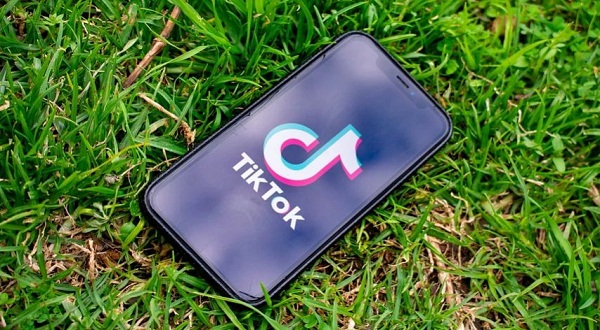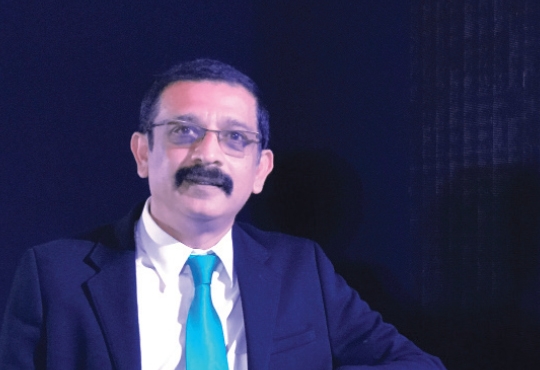
No More TikTok: Censorship in India and its Influence
CIOReviewindia Team | Wednesday, 05 August 2020, 05:21 IST

Many countries around the world impose rules on which content is to be considered acceptable. In India, the number of such blocks is increasing. Just recently, the government listed strict regulations on the use of TikTok and continues to consider other geo-restrictions. As usual, people look for workarounds when it comes to regaining internet freedom. While you should treat all of these suggestions with caution, there are ways to become more independent online.
Businesses use this handy tool called a VPN to transfer files and communicate online safely. Regular internet users apply it to bypass internet censorship, unblock geo-restricted content, and add an extra layer of protection when browsing the internet. These networks are the most effective way to enable remote workplaces without compromising sensitive data, as they also provide additional safety when using public Wi-Fi networks. Like in other countries, people of India are likely to benefit from VPNs in a variety of situations. Here's what you should keep in mind when considering using this service in India.
The current situation in India
As mentioned before, censorship is a growing problem all over the world. In India, such restrictions are sweeping the country as well. One of the government's notable decisions was to ban TikTok and prevent people from posting or viewing the video content. However, while TikTok was one of the biggest fish to fry, the censorship also included the ban of 59 Chinese apps. While the reasons for these blocks are up for debate, it has become clear that this is not the end. Recently, the media reported that three Indian environmental organizations' websites had been blocked in India.
What solutions are available?
Many internet freedom advocates regard such restrictions as a violation of users' rights. Naturally, people start to look for effective workarounds, allowing them to use the banned apps. With today's tense climate, people need to be very careful about their online activities. One of the potential solutions is the use of a VPN. People use such tools for a variety of purposes. Since one of the primary goals is hiding your IP address, it can be used for bypassing censorship.
While using a VPN in India isn't illegal, accessing certain websites that are banned is. Since a PN allows you to bypass such restrictions, it's a bit confusing to know the difference, but we'll get to that a bit later.
A Windows VPN is here to provide you with a chance to browse the internet safely. If hackers attempt to intercept connections and obtain private data, a VPN will build a strong defense mechanism. It will encrypt all web traffic and ensure that the transmitted data will not be used against you.
The Legality of It All
The simple use of a VPN in India isn't illegal per se. As we mentioned earlier, no law prohibits the use of a VPN in the country. If we consider all the benefits discussed above, it's safe to conclude that VPNs are becoming quite popular. They safeguard data and allow people to browse the internet without fear. The only exception is if you use this tool for illegal activities. Some of these include accessing pirated or blacklisted content.
The Indian government doesn't take kindly to citizens trying to get their hands-on torrent sites that promote piracy and pornography. However, even if you use a VPN for these reasons, it isn't the use of a VPN that will get you prosecuted, but rather the intention to access pirated or blacklisted content.
The Charges
In case you get prosecuted for surfing a site that facilitates the distribution, downloading and viewing of prohibited content, you will fall under Sections 63, 63A, 65 and 65A of the Copyright Act, 1957 under the Constitution of India.
Moreover, you will be subjected to a penalty of up to Rs 300,000 or up to 3 years of imprisonment for streaming and downloading any unauthorized content hosted illegally. Put simply, the use of a VPN isn't that big of a deal in India but trying to access any restricted content is.
If you want to use a VPN in India, choose the desired service provider and protect yourself from ransomware and malware lurking from every corner of the internet. As long as you avoid treat all of your activities with utmost care, your browsing should go smoothly.
Conclusion
The use of VPNs is continually increasing on a worldwide level. With the services becoming more available, beneficial, and affordable, there are more consumers with each passing day. A VPN is probably the most effective and affordable ways to protect your personal information, business data, and so on. By applying a strong VPN, you will be able to withstand most of the common threats and circumvent risks.
CIO Viewpoint
Industry 4.0: The Disruptive Force
By In conversation with Murali Raj G R, CIO, HIL
Navigating Constant Change: A CIO's Rules of...
By Jason Lichtenthal, SVP, CIO, The PURE Group of Insurance Companies
How to Raise your Digital Quotient?
By Rajan Venkataraman, Chief Technology Officer, NIIT
CXO Insights
5G Will Bring A Data Tsunami: Can Your Data...
By Nikhil Korgaonkar, Regional Director, Arcserve India & SAARC
Machine Learning Trends In 2021
By Kavitha Siddada, Head - Design Engineering, Shell
The Rise Of Developer Led Innovation &...



.jpg)





